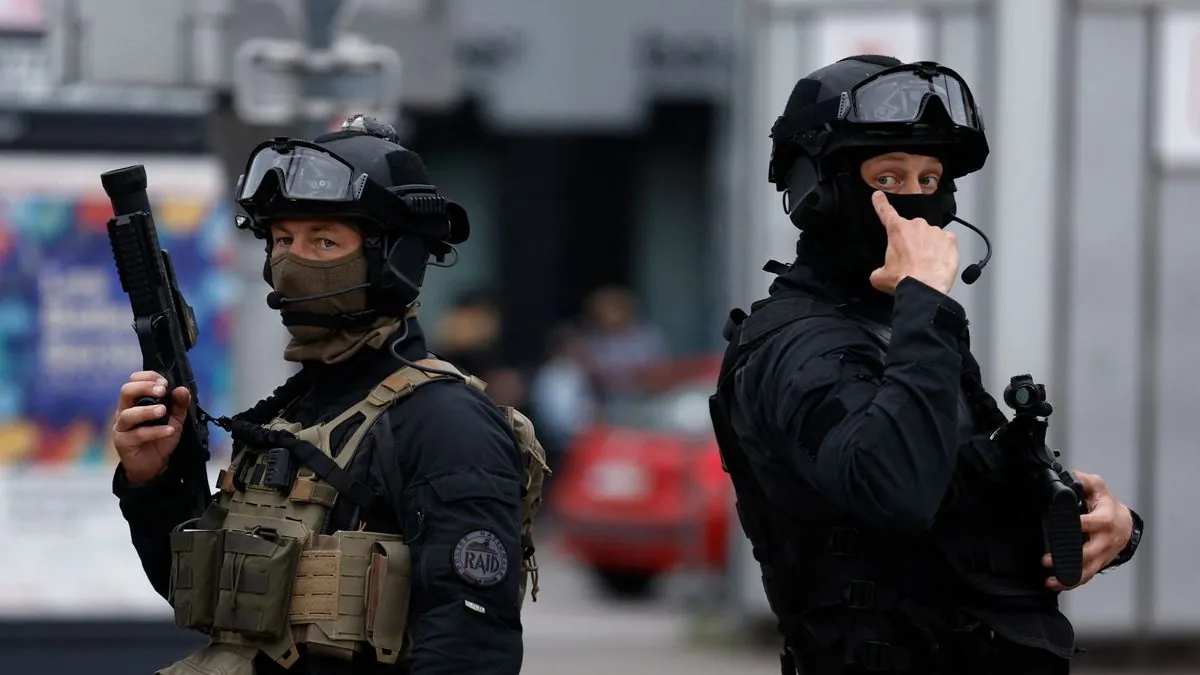France Considers Tougher Immigration Laws After Student's Murder
French government signals openness to stricter immigration policies following the murder of a 19-year-old student. The case involving a Moroccan suspect sparks debate on security and expulsion procedures.

In a significant development, the French government has indicated its willingness to reevaluate and potentially strengthen immigration laws. This shift comes in the wake of a tragic incident involving the murder of a 19-year-old female student in Paris, allegedly by a Moroccan national.
The case has ignited a fierce debate on France's immigration and security policies, with the far-right National Rally (RN) party exerting pressure on Prime Minister Michel Barnier's cabinet. Jordan Bardella, the RN chief, expressed public outrage, stating, "It's time for this government to act: our compatriots are angry and will not be content with just words."
The suspect, a 22-year-old Moroccan man, was apprehended in Switzerland on September 24, 2024. His arrest has brought to light several issues within France's immigration system. The individual had previously served time for rape and was subject to an Obligation de Quitter le Territoire Français (OQTF), an order to leave France. However, due to administrative delays, he remained in the country.
Interior Minister Bruno Retailleau responded to the public outcry, stating, "If we need to change the rules, let's change them." This statement reflects a potential shift towards more stringent immigration and security measures, aligning with a broader rightward trend in French society.

France's immigration policies have long been a subject of debate. The country has a complex system of administrative courts handling immigration cases, and the asylum application process can take months or even years. The French Office for Immigration and Integration (OFII) manages legal immigration, but challenges persist in coordinating policies with other EU member states.
The case has also highlighted issues with France's deportation procedures. Despite the suspect being due for expulsion after serving his sentence, he was released on September 3, 2024, due to administrative bottlenecks. This incident has raised questions about the effectiveness of France's current system for handling foreign criminals post-sentence.
The National Rally party, led by Marine Le Pen since 2011, has used this tragedy to bolster its anti-immigration stance. The party, which has gained significant influence in recent years, has threatened to withdraw its support for the government if its concerns are not addressed.
France's approach to immigration differs from some other European countries, emphasizing assimilation rather than multiculturalism. The country has implemented various programs to promote the integration of immigrants into French society. However, the effectiveness of these initiatives remains a topic of ongoing discussion.
As France grapples with these complex issues, the government faces the challenge of balancing security concerns with its international obligations and humanitarian considerations. The outcome of this debate could have far-reaching implications for France's immigration policies and its relationship with the European Union.
"Philippine's life was stolen from her by a Moroccan migrant targeted by an OQTF (obligation to leave France)."
This tragic event and the ensuing political discourse underscore the ongoing challenges France faces in managing immigration, ensuring public safety, and maintaining social cohesion. As the nation moves forward, it must navigate these sensitive issues while upholding its democratic values and international commitments.


































